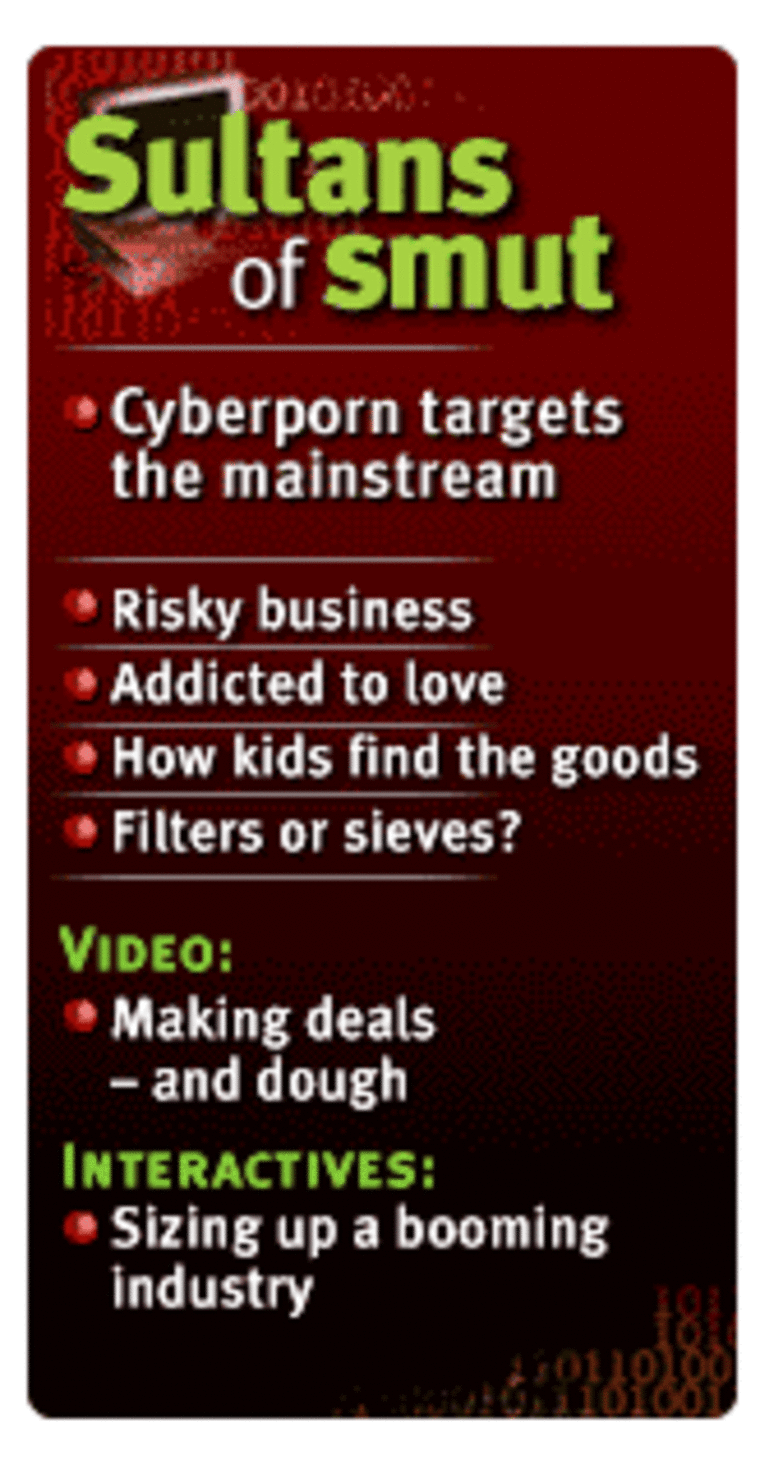Graphically illustrating its contention that its software is second to none, the Internet-filtering firm Websense is linking its corporate home page to a daily roster of sites featuring hard-core sex, hacking information and racist rants that it says weren’t blocked by two of its rivals.

USERS WHO TAKE the San Diego-based company up on its invitation to “test the competition” also encounter links to sites offering Internet gambling, weaponry and “questionable or illegal” products — such as a site showcased Monday that offers free downloadable essays for students.
The Websense site features disclaimers similar to those found on adult Web sites that ask viewers to click on a button to verify that they are at least 18 and are prepared to view “sexually explicit or other material which you may find offensive.”
Andy Meyer, vice president of marketing for Websense, said that the company added the comparison feature to highlight a recent analysis by an independent lab that rated its corporate content filters higher than two of its rivals.
“The whole point is to illustrate that you are buying a product ... with the best quality database and the best quality and processes behind it,” he said. “It’s a validation.”
Meyer said that company executives were not concerned that kids would use the tool to access objectionable content that that might otherwise be blocked by their parents, teachers or librarians because the company’s site caters to corporations and government entities rather than the public.
But Ruben Rodriguez of the National Center for Missing and Exploited Children said the stunt is ill-advised nonetheless.
“It would appear to me that advertisers should think a little more about the ramifications of what they do,” said Rodriguez, who directs the center’s child exploitation unit. “Is there potential for children getting access to this stuff (through the site)? Are we making it easier for them to some degree? I would say the answer to both those questions is ‘yes.’”
The Websense rivals targeted in the comparison also took issue with it, though for different reasons.
Susan Getgood, a vice president for marketing with SurfControl, called the feature “kind of a gimmick.”
“We don’t think that tests like these actually measure anything meaningful,” she said. “There are tens of thousands of new Web sites every day, and we have the largest content database in the world.”
Officials with SmartFilter said that the Websense comparison didn’t accurately reflect which sites its software would filter and noted that two other studies last year rated its product more accurate than the Websense software.
“Websense has a very aggressive marketing organization that is not afraid to make strong claims to generate interest in their product,” said Paul DeBernardi, director of product marketing for SmartFilter. “... I don’t think we’re in a position where we want to get into a major P.R. battle with them. We deal with this on a day-to-day basis with clients and analysts and the press.”
Neither the SurfControl nor the SmartFilter officials said Monday that they have any plans to add the Websense site to their databases of blacklisted Web sites, despite the revolving menu of material that would normally quickly be banished from browsers. Nor do they intend to retaliate in kind by highlighting sites blocked by their software that are not filtered by Websense.
Seth Finkelstein, a civil libertarian computer programmer adamantly opposed to such “censorware,” said the double standard apparently arises out of fear that an internecine feud would highlight the shortcomings of filtering technology.
“If somebody else had done this, they would ban it immediately,” said Finkelstein, who won the Electronic Freedom Foundation’s 2001 Pioneer Award for his work in monitoring the filtering field. “They do ban directories of such sites, but they’re not doing it for this one.”